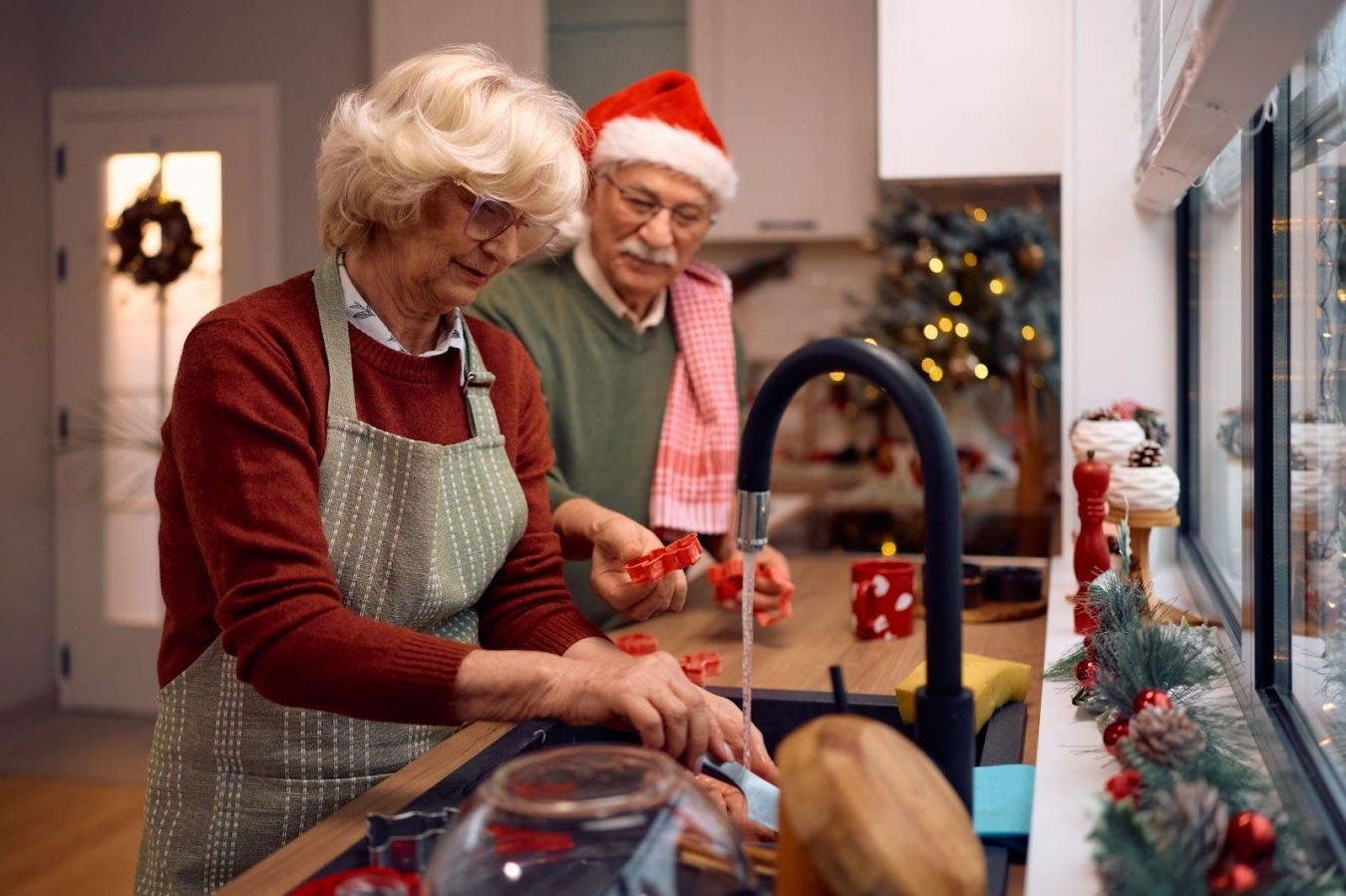
How to Avoid Christmas Drain Blockages
Tuesday 10th December, 2024The festive season is a time for celebration, indulgence, and bringing family and friends together. However, it’s also a time when the UK’s drainage systems are at greatest risk.
The combination of elaborate meal preparations, increased waste production, and the rush to clean up after gatherings often leads to improper disposal habits. As a result, Christmas - for all its joy - has become a gloomy time of year when it comes to protecting our sewers and seas.
However, with the right approach, the festive season doesn’t have to be synonymous with drain-related disasters. By adopting a few important Unblocktober tips, you’ll be able to avoid adding to this problem, prevent seasonal blockages and enjoy a stress-free Christmas.
Why is Christmas so tough on drains?
Christmas dinner is a highlight of the season, with roast meats, gravy and rich sauces taking centre stage. However, these festive favourites also produce substantial amounts of fats, oils and grease (FOG), which are often disposed of improperly. Many households, while preparing or cleaning up after meals, pour leftover cooking fats directly down the kitchen sink, posing a severe risk to the drainage systems.
In addition to fats, the increased use of wet wipes for post-dinner clean-ups or party preparation adds to the strain on drains. Unlike toilet paper, wet wipes do not break down easily in water. When combined with FOG, they create fatbergs, which clog pipes and cause backups.
The combination of busy kitchens and the pressure to tidy up quickly often leads to neglecting proper waste disposal habits. As such, the holiday season, with its surge in cooking and cleaning activities, becomes a particularly dangerous time for drains.
Unblocktober’s 2024 Drainage Habits Survey sheds more light on this troubling trend. Polling more than 600 members of the British public, we found that 58% of people admit to having poured oil or fat down their kitchen sink at some point. Even more concerning, 18% reported doing this at least once a day - and 10% confessed to doing it three or more times each day!
With larger meals being prepared and more frequent clean-ups taking place, Christmas only exacerbates these existing behaviours - which is why a change of attitude is vital this festive season.
What are the consequences of poor drainage habits at Christmas?
Pouring oil down the sink amid all the hustle and bustle of Christmas might feel like a small mistake, but the consequences can be anything but. Blocked pipes don’t just cause inconvenience; they can lead to bigger issues like flooding. In winter, when heavy rainfall is more common, drains that are already clogged struggle to cope. Water can back up into homes or gardens, leaving behind unpleasant odours and damage that’s expensive to fix. Imagine hosting Christmas dinner only to deal with a flooded kitchen or garden - it’s enough to ruin anyone’s festive cheer!
It’s not just households that feel the impact. Blocked drains can strain public infrastructure, leading to costly repairs and environmental harm. When drains overflow, the waste often ends up in rivers or seas, damaging wildlife and ecosystems. What starts as a little oversight can snowball into something much bigger, affecting your neighbourhood and beyond.
Fortunately, a few simple changes in how waste is handled during Christmas can make a big difference in keeping your home and community free from drain-related disasters.
How to protect your drains this Christmas
Protecting your drains during the festive season doesn’t require drastic changes - just a few simple tweaks to how you handle waste can make a big difference. Here are some easy steps to keep your drains flowing smoothly and avoid any Christmas chaos:
- Cool it and bin it: after cooking, let fats and oils cool down before scraping them into a container or straight into the bin.
- Ditch the wet wipes: wet wipes are handy for cleaning up, but they don’t break down in water like toilet paper. Even if they say “flushable,” throw them in the bin instead to avoid blockages.
- Scrape your plates and pans: before washing up, scrape leftover food and grease into the bin. It only takes a moment, but prevents fats and bits of food from making their way into your pipes.
- Use a sink strainer: a small strainer in your sink can catch food scraps and prevent them from going down the plughole. It’s an easy, inexpensive way to protect your drains.
- Spread the word: if you’re hosting family and friends, remind everyone to think twice about what they’re pouring or flushing. A quick chat can save you from dealing with drain disasters later.
This Christmas, let’s keep the festive cheer flowing by protecting our drains and sewers from unnecessary blockages. By making small changes to how we handle waste, we can enjoy the season while safeguarding our homes and saving our sewers and seas.
If you’ve found this blog post helpful, why not explore more of the Unblocktober blog?
Packed with practical advice and inspiring ways to make a difference, it’s the perfect opportunity to start new habits that benefit everyone.
You can also sign up as a supporter of the campaign and join the thousands of people who take part in the Unblocktober challenge every October. Together, we can make a big impact - one thoughtful choice at a time.
Have a Merry Christmas and a Happy New Year, from everyone at Unblocktober!

